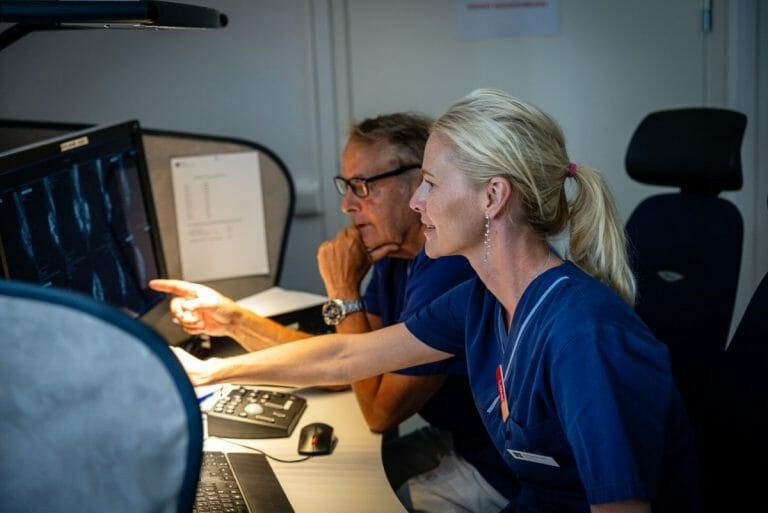Lunit (KRX:328130.KQ), a leading provider of AI-powered solutions for cancer diagnostics and therapeutics, is spearheading a transformative change in breast cancer screening, bolstered by groundbreaking findings from a prospective study led by Dr. Fredrik Strand at the Karolinska Institutet, Sweden, involving over 50,000 women.
Utilizing Lunit INSIGHT MMG, an FDA-cleared and CE-marked AI solution for mammography analysis, this research backs AI’s potential to replace one human reader under Europe’s double reading guideline and underscores its capacity to alleviate the strain on radiologists.
“While double readings by two radiologists have been established as the common practice across Europe and Australia, many countries are experiencing great difficulties due to the shortage of radiologists,” explained Dr. Strand, breast radiologist and associate professor at Karolinska Institutet. “This prospective study lays the groundwork for the widespread adoption of AI in breast cancer screening by filling the role of one radiologist, which in turn can reduce medical costs and lead to healthcare reimbursement.”
Conducted from April 1, 2021, to June 9, 2022, this study meticulously analyzed 55,581 breast cancer screening cases in real-world clinical settings. The analysis introduced three independent readers: Radiologist 1, Radiologist 2, and Lunit INSIGHT MMG, enabling meticulous comparisons.
The outcomes were transformative: Lunit INSIGHT MMG, collaborating with a single radiologist, exhibited a superior Cancer Detection Rate (CDR) of 4.3 per 1000, surpassing the traditional two-radiologist approach with a CDR of 4.1 per 1000. The study also showed a significant decline in recall rates (RR) with AI, both in collaboration with one radiologist (RR 2.8, 4.44% decrease) and when operating independently (RR 1.55, 47.1% decrease), compared to the double reading system (RR 2.93).
Building upon these findings, Lunit forged a pioneering partnership with Capio S:t Göran Hospital, Sweden’s largest private hospital and a part of the Ramsay Santé group, earlier this year. Based on the contract, Lunit has integrated Lunit INSIGHT MMG, marking the first-ever actual implementation where AI replaces one of the two human readers in breast cancer screening. The hospital currently employs Lunit INSIGHT MMG to analyze more than 180,000 mammograms annually, significantly contributing to Sweden’s national breast screening program.
“This innovative step to becoming the world’s first breast center using AI as an independent reader, allows radiologists to be less burdened from the excessive amount of reading, enabling them to focus on more advanced diagnostics and ensuring shorter waiting times for patients,” said Dr. Karin Dembrower, Senior Physician of Capio S:t Göran Hospital Mammography Clinic. “In the short term, we anticipate detecting more cancers; in the long term, we envision a decrease in interval cancers and the detection of smaller tumors. We are excited to conduct further studies to explore these possibilities.”
Recently published in The Lancet Digital Health, study results and the implementation story will also be presented at the forthcoming EUSOBI 2023 (European Society of Breast Imaging 2023) conference in Valencia, Spain, from September 28 to September 30.
“This study signifies a milestone in healthcare, ushering in an era where AI seamlessly complements and elevates the standards of breast cancer screening. AI is redefining cancer screening standards,” said Brandon Suh, CEO of Lunit. “Our collaboration with Capio S:t Göran Hospital is pivotal in addressing the radiologist shortage and revolutionizing mammography analysis. It reinforces Lunit’s dedication to forming similar alliances with European medical institutions to enhance patient experiences and optimize operational efficiency.”
